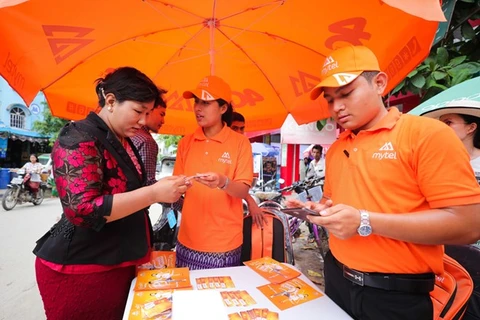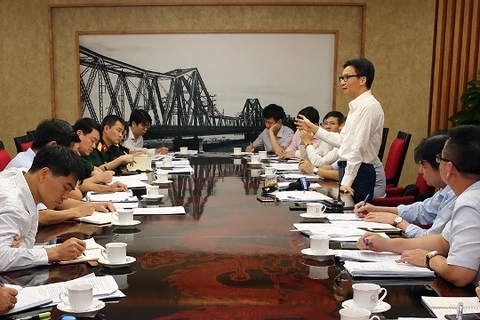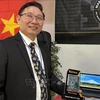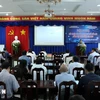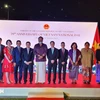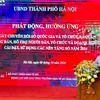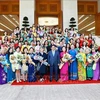Hanoi (VNS/VNA) - A recent report by the Vietnam Telecommunications Authority (VNTA) revealed that the bandwidth for 4G in Vietnam is lower than in many other countries.
According to the survey on 50 operators in 17 countries, Vietnam ranked bottom in terms of bandwidth for 4G mobile networks.
Specifically, Vietnamese bandwidth for 4G is 15*2 MHz for each telecommunication operator, while that of the Republic of Korea’s SK Telecom is 70*2 MHz, Australian Telstra is 80*2 MHz and Chinese China Mobile is 220 MHz (equivalent to 110*2 MHz).
Experts said that with limited bandwidth, 4G service quality could be poor.
Talking to online newspaper ICTnews recently, Tao Duc Thang, Deputy General Director of Viettel, said that with the amount of 4G subscribers, the operator did not have enough bandwidth for 4G subscriber development.
Currently, Viettel is the network provider with the largest number of 4G subscribers. It is using previously granted bandwidth for 2G and 3G to provide 4G services to customers.
Therefore, Viettel proposed early bidding for 2.6 GHz bandwidth so that it can ensure 4G service quality.
Recently, Viettel Group has proposed the Ministry of Information and Communications to soon take the licensing for 2.6GHz bandwidth into consideration for 4G services.
Hoang Son, Deputy General Director of Viettel Group, said that the 1800 MHz bandwidth that enterprises were deploying was not enough for operators to provide 4G with good quality.
Therefore, Son suggested that if the 4G auction had not been implemented yet, enterprises would be allowed to “borrow” 2.6 GHz bandwidth. They would pay fees for used frequencies so that they could ensure 4G service quality for customers.
Son said that the need for more network bandwidth was very urgent, while the 2.6 GHz bandwidth was left unoccupied, which could cause waste.
After the ministry’s bidding, the operator would return this bandwidth to the ministry, he said.
The Ministry of Information and Communications had a plan to license the 2.6 GHz band to allow telecommunications enterprises to deploy 4G networks and four businesses have registered.
However, there are still many differing opinions among ministries and agencies on the process and procedures for licensing.
The losses to businesses and society from delaying 4G deployment was much larger than those from licensing, said Deputy Minister of Planning and Investment Vu Dai Thang.
The online newspaper also quoted a representative of the Ministry of National Defence as saying that the licensing for the exploitation of the 2.6 GHz bandwidth not only solved urgent problems for telecommunication enterprises but also ensured information work in security and defence activities.
At a recent meeting with the Ministry of Information and Communications, Prime Minister Nguyen Xuan Phuc said that it was urgent to allocate the rights of using 2.6GHz bandwidth to telecommunication businesses to improve 4G service quality and develop 5G.
A survey showed that 4G network speed in Vietnam ranked 75th in the world.
Le Van Tuan, deputy Director of the Authority of Radio Frequency Management also said that on the 2.6GHz bandwidth licensing, the Ministry of Information and Communications was seeking the Ministry of Finance’s opinion on asset valuation.
The Law of Bidding is the biggest obstacle to 4G band bidding. Telecommunication operators are only taking advantage of the bands that have been granted to 2G and 3G to provide 4G services.
Therefore, it is understandable for operators when they complained about the lack of bandwidth and difficulties to ensure 4G quality provided to customers.-VNS/VNA
VNA


